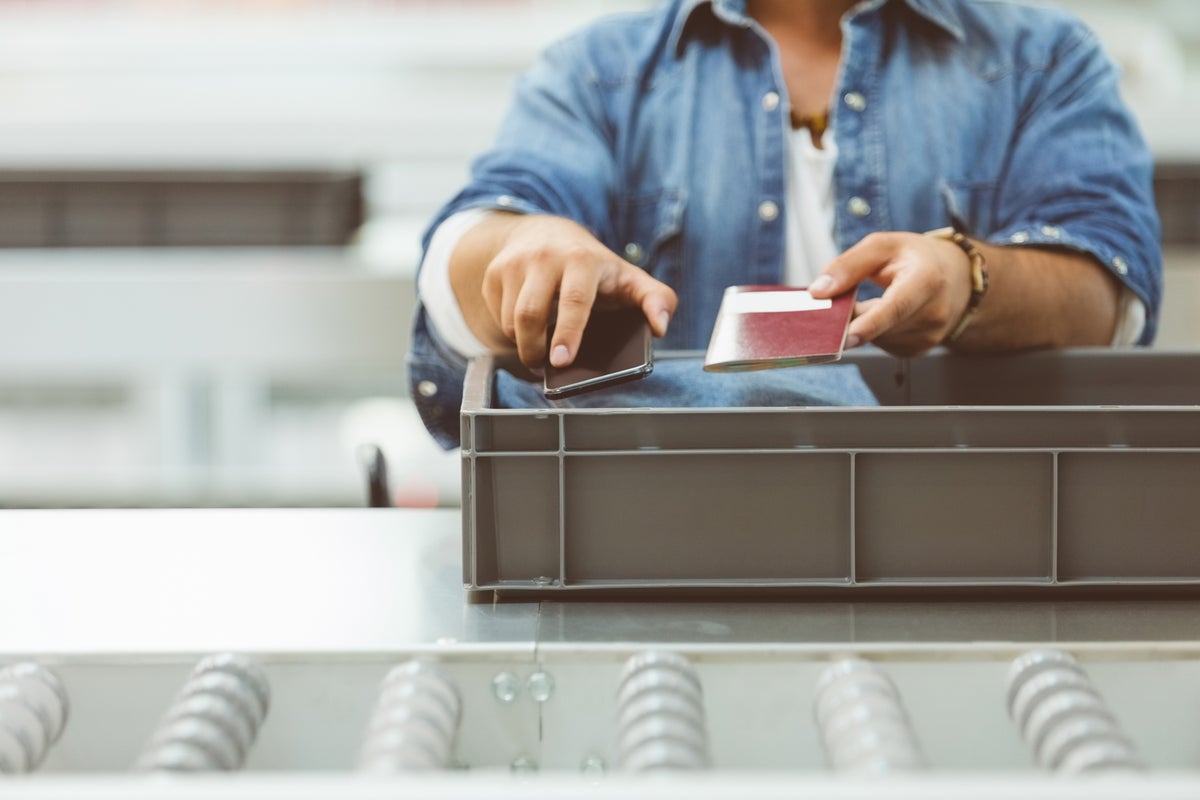New security scanners that would save passengers from removing liquids from hand luggage have been delayed by a year as some airports fall behind schedule.
The government acknowledged that some large airports that were unable to fully install new technology by the June 1 deadline have been granted extensions.
The Department for Transport did not reveal which operators had received extensions but said fines would be imposed on those who did not meet the final June 2025 target.
The City of London is the first major UK airport to introduce the device, which allows passengers to carry up to two liters of liquid in hand luggage, eliminating the hassle of small 100ml containers that have to be removed and placed in clear plastic bags.
Heathrow has previously said it expects to install new scanners at all security lanes this summer, while Gatwick expects to complete the program by the end of March next year.
Manchester Airports, which operates Manchester, East Midlands and Stansted airports, said its scanners would not be fully rolled out until 2025.
The Department for Transport said post-Covid supply chain issues meant checkpoints could not be upgraded by the deadline, which has been extended from 2022 due to the pandemic.
The statement said extensions were made “on a case-by-case basis.”
“It’s important that we give airports that have not yet met their deadlines a second chance to get the job done,” Transport Minister Mark Harper said. “Until then, passengers should continue to check before traveling.
“We recognize that installing new safety equipment at busy airports has always been a logistical challenge, with some airports having to undertake extensive construction work to install new, extremely heavy equipment. In some cases, airports have been required to build entirely new screening room.”
The government introduced restrictions on liquids in 2006 after a terrorist plot to blow up a plane flying from London to the United States with a homemade liquid bomb was foiled. Travelers’ failure to follow these rules is one of the biggest causes of airport security delays.
Karen Dee, chief executive of the Airport Operators Association, claimed the airport had made “tremendous progress” in installing new machinery, costing millions of pounds.
She added: “As with any scheme of this complexity, there are significant challenges and we are pleased that the Government has recognized these and agreed to extend delivery times where necessary.”
Follow us on Google news ,Twitter , and Join Whatsapp Group of thelocalreport.in
